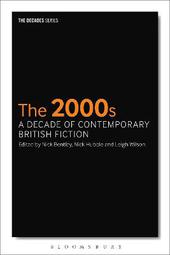
|
The 2000s: A Decade of Contemporary British Fiction
Paperback / softback
Main Details
Description
How did social, cultural and political events in Britain during the 2000s shape contemporary British fiction? The means of publishing, buying and reading fiction changed dramatically between 2000 and 2010. This volume explores how the socio-political and economic turns of the decade, bookended by the beginning of a millennium and an economic crisis, transformed the act of writing and reading. Through consideration of, among other things, the treatment of neuroscience, violence, the historical and youth subcultures in recent fiction, the essays in this collection explore the complex and still powerful relation between the novel and the world in which it is written, published and read. This major literary assessment of the fiction of the 2000s covers the work of newer voices such as Monica Ali, Mark Haddon, Tom McCarthy, David Peace and Zadie Smith as well as those more established, such as Salman Rushdie, Hilary Mantel and Ian McEwan making it an essential contribution to reading, defining and understanding the decade.
Author Biography
Nick Bentley is Senior Lecturer in English Literature at Keele University, UK. He is author of Martin Amis (2015), Contemporary British Fiction (2008), Radical Fictions: The English Novel in the 1950s (2007) and editor of British Fiction of the 1990s (2005). Nick Hubble is Reader in English at Brunel University London, UK. He is co-editor of The Science Fiction Handbook (2013), The 1970s (2014) and The 1990s (2015) all published by Bloomsbury. Leigh Wilson is Reader in Modern Literature at the University of Westminster, UK. She is the author of Modernism (2007) and Modernism and Magic (2013) and co-editor of The 1980s (2014) and The 1990s (2015) published by Bloomsbury.
ReviewsThe list of writers considered is extensive, including Ian McEwan, Zadie Smith, Martin Amis, A. S. Byatt, David Peace, Hilary Mantel, Patrick McCabe, and Kazuo Ishiguro, to name just a few ... Whether the writers discussed extend the techniques of postmodernism, the search in so many of these novels is for positions that assert objective reality or ethical values. Accordingly, the essays consider topics such as regionalism, youth subcultures, postcolonialism, historical fiction, the mingling of realism and experimentalism, and the "neuronovel" (new perceptions of the brain and the novel). The collection's four helpful appendixes provide time lines (of works, national events, and international events) and biographies of prominent writers. Summing Up: Recommended. Lower-division undergraduates and above. * CHOICE * This volume offers academics a useful starting point to explore the challenges faced by contemporary British literature and to understand the various economic, cultural, sociological and political factors which shaped it. There are plenty of leads here for other scholars to pursue, which surely must be a key goal for collections of this kind. * English Studies *
|